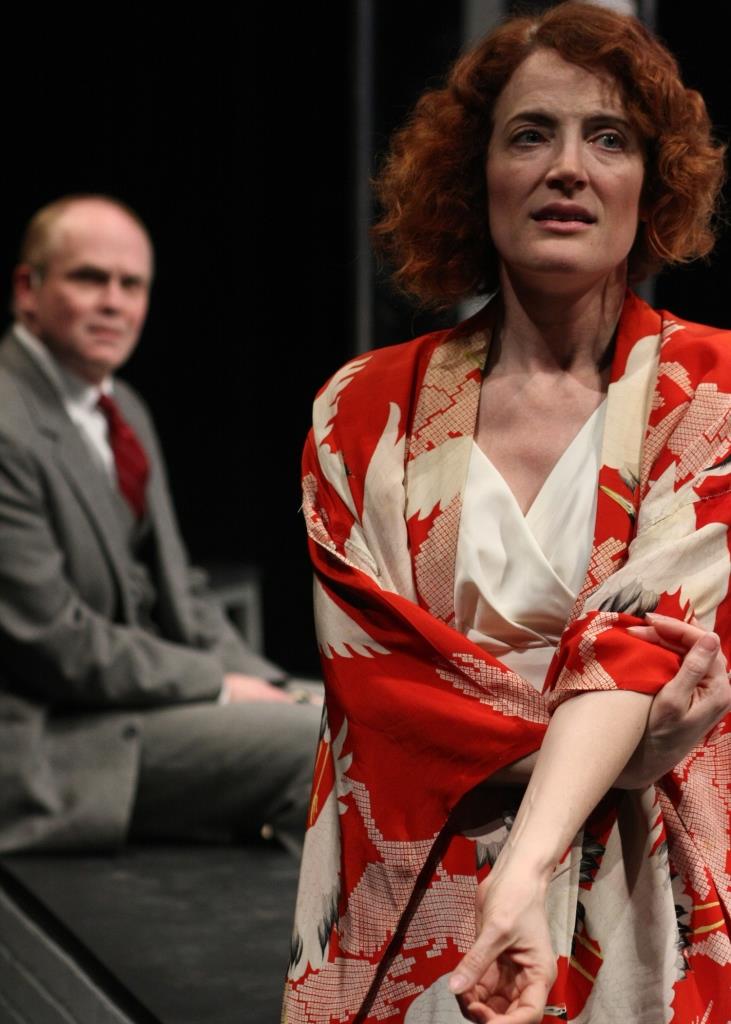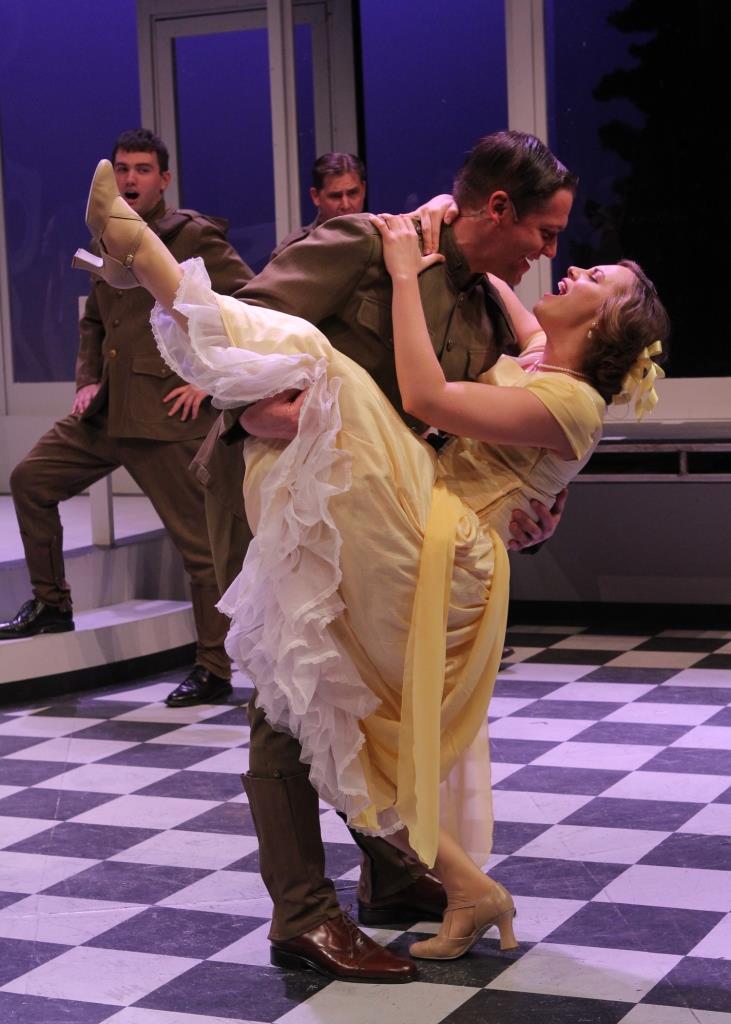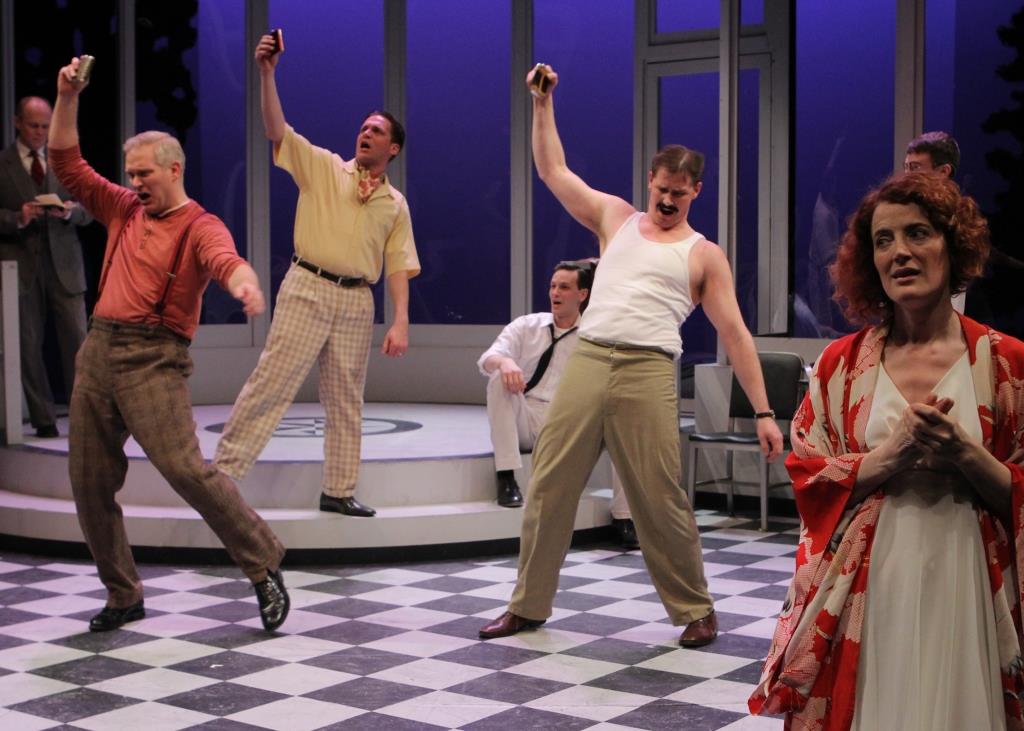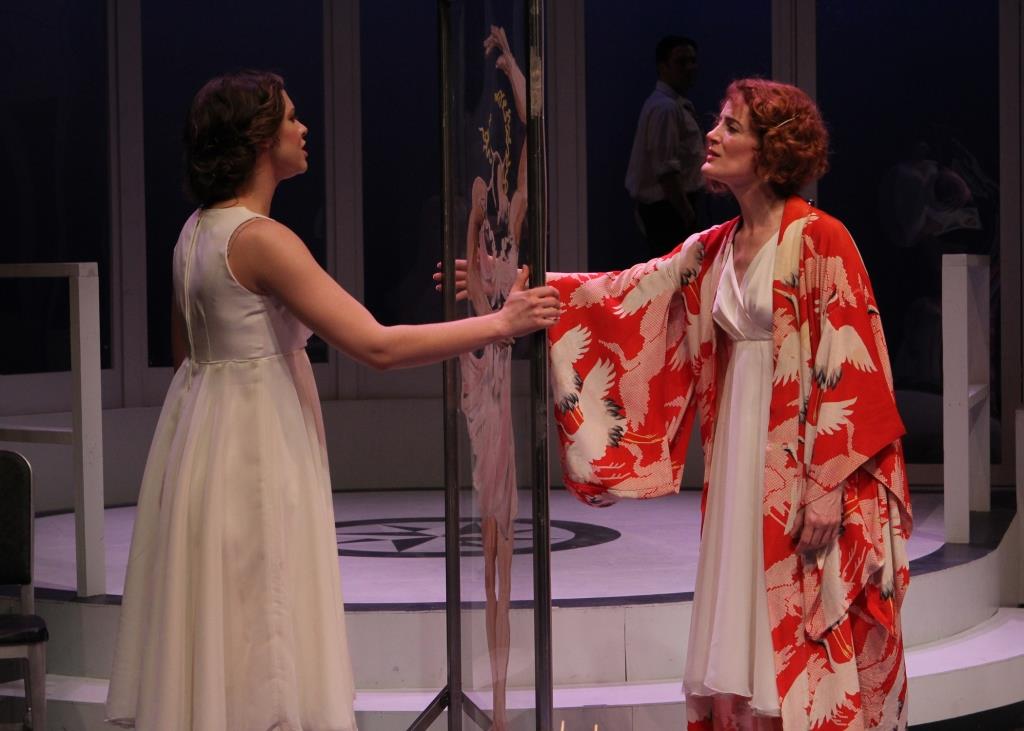
History Theatre’s “This Side of Paradise” looks into the troubled lives of F. Scott and Zelda Fitzgerald
History Theatre’s musical take on the troubled marriage of F. Scott and Zelda Fitzgerald, “This Side of Paradise,” is well-timed to take advantage of the renewed interest in this 1920s and ’30s “it” couple ginned up by Baz Luhrman’s extravagant new silver-screen adaptation of “The Great Gatsby.” Like the movie, the play revels in Jazz Age nostalgia – the melodic swing of the music and cosmopolitan conceits of the era’s cultured classes, the entanglements of money and art, booze and sexual exuberance that marked the period.
“This Side of Paradise” started life as “Winter Dreams,” a narrative song cycle mining F. Scott Fitzgerald’s life and most famous literary characters, originally composed and sung by Nancy Harrow. The script of the play that followed, written by Harrow in partnership with Will Pomerantz, builds upon that musical scaffolding to recount the public triumphs and private turmoil of the Fitzgeralds’ lives together, as told from Zelda’s perspective during therapy sessions with a doctor treating her in a sanitarium. The play opens in 1940 in the hospital where Zelda has been living for years, troubled by mental illness and the ravages of alcoholism; it’s the year F. Scott Fitzgerald will die of a heart attack at just 44 years old.
Zelda (Norah Long) speaks to Doctor Cassell (Alan Sorenson) about her life struggles. Photo by Scott Pakudaitis, courtesy of History Theatre
The ensemble cast includes a live band backing 12 musically gifted performers who enact musical scenes from the Fitzgeralds’ tumultuous life together: we see their tempestuous courtship, and then revisit the young couple in Paris and New York, in the full flush of his publishing success and celebrity. Later, we watch as they hurt themselves and each other with drink and petty jealousies; we see their daughter Scottie grow from a child into a bereft young woman. There are cameos by Fitzgerald’s literary cohort, Ernest Hemingway and Canadian journalist Morley Callaghan.
The subtlety and mercurial charisma that Norah Long, in particular, teases from our protagonist, the older Zelda, makes this a show worth seeing. Long’s vocal fluency, the storytelling power of her musical phrasing and sheer force of her physical presence on stage evinces not just the tumult of Zelda’s mind, but also her magnetism. Her honeyed alto shifts seamlessly from anguished to antic, vain to vulnerable. The other cast members pull off their roles admirably, but Long’s performance is simply riveting.
Scott (Bradley Beahen) dances with Zelda (Kendall Anne Thompson) during their first meeting. Photo by Scott Pakudaitis, courtesy of History Theatre
Rick Polenek’s scenic design for this production is also especially clever: the black-and-white checkered tile floor against high walls, clean lines of steel and glass, evokes both the austerity of the institutional setting and Art Deco panache of the time. Stretching behind Zelda’s living space, separated by a large glass pane, is a pair of enclosures in which the vignettes from her memory unfold and occasionally spill out into her hospital room – a setting that serves to reinforce the fractal, evanescent quality of Zelda’s interior landscape as she relates her story in bits and pieces.
As much as there is to recommend the execution of this particular production, if you know something of the Fitzgeralds’ troubled marriage and literary legacy, the script doesn’t have much to offer by way of fresh insight or angles of approach on the material. And the music at the heart of the production, although ably performed, is atmospheric but vapid. The melodies are pleasantly toe-tapping, but I couldn’t hum you a memorable phrase a couple of days on from the performance. The lyrics are similarly forgettable – simple rhyming couplets with little of the clever word play or emotional nuance of the great American songbook from stage and screen to which these songs inevitably beg comparison.
Zelda (Norah Long) looks back on the nights when Scott Fitzgerald (center, Bradley Beahen) would spend time with Callahan (left, Joel Liestman) and Ernest Hemingway (right, Eric Knutson). Photo by Scott Pakudaitis, courtesy of History Theatre.
“This Side of Paradise” is entertaining if lightweight – a thinly plotted script and stylish but facile musical score, buttressed by smart staging and an ensemble cast talented enough to make even flimsy source material feel substantial.
Zelda (right, Norah Long) looks back in time to when she was younger (Kendall Anne Thompson). Photo by Scott Pakudaitis, courtesy of History Theatre
“This Side of Paradise,” book by Will Pomerantz and Nancy Harrow, with music and lyrics by Nancy Harrow, is directed by Ron Peluso, with music direction by Andrew Fleser. The production runs through May 19 at the History Theatre, 30 East 10th Street, St. Paul. For ticket information and show times: http://www.historytheatre.com/.
Recent Content
-
Artsarticle ·
-
Artsarticle ·
-
Artsarticle ·




